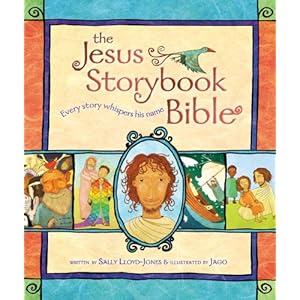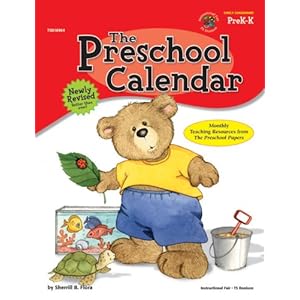 About What Was Lost is a book edited by Jessica Berger Gross. This book is a compilation of stories from 20 women who have dealt with miscarriage including the editor. Some of these women are "notable" writers such as Pam Huston, Joyce Maynard, Caroline Leavitt, Susanna Sonnenberg, and Juilanna Baggott, among others. But I didn't know any of the authors.
About What Was Lost is a book edited by Jessica Berger Gross. This book is a compilation of stories from 20 women who have dealt with miscarriage including the editor. Some of these women are "notable" writers such as Pam Huston, Joyce Maynard, Caroline Leavitt, Susanna Sonnenberg, and Juilanna Baggott, among others. But I didn't know any of the authors.This was a hard book to read. I did finish it but admit to skimming a lot at the end. I don't believe that any of the authors are believers and most of them have very liberal viewpoints. But they lost babies just like I lost my baby so I tried to take that into consideration when reading the book. Some of their thoughts rang true to my grief-process:
Caroline Leavitt
But the yearning, the grief, never totally goes away. It's there under the daily happiness, the joy of a husband and another child. I marked off that baby's birthday every year. I grieve for that little soul. And sometimes I apologize to it, not because I believe I'm responsible, but because it never got to live. It never go the chance to be a real person. We never got to really know each other. It wasn't just the death of a baby, it was the death of hope, "The thing with feathers," as Emily Dickinson said, and it - and I - never had a chance to soar.I think this hit home for me because, like with most losses, I won't forget. It will never really go away although there will be more and more days that I won't think about it - it will never go away. I do feel like my baby never got to be a real person and I feel that way more about other people's view not my own. It wasn't real to other people so was it really real? And I did lose hope. Honestly, I am scared to hope. But I've been blessed with a gift of clarity from God (I will talk about that closer to the due date of our baby) that has put peace back in my heart.
Susanna Sonnenberg
Miscarriage was the shadow to a brightly lit subject. People didn't like to talk about shadows. They liked to talk about hope, and the unraveled pregnancy had no language, wasn't suitable for discussion.When I lost my baby, I did feel like I was living in the shadows. In the shadows of mothers who were still pregnant. Who had life inside of them. I felt as though people didn't want me to talk about it because I was casting a deep dark scary shadow over their brightest light. And so I didn't. I isolated myself because I didn't want to be that shadow. And that isolation caused my days to grow so dark.
I felt dismal with isolation. An acquaintance approached me and said she'd heard from a friend. She said, "I'm so sorry. We've all been there." We. Our world, our important world of unnameable injuries. She and I had never had much to say to each other, except for prickly social frivolities, but now she seemed essential, a compatriot. I let her hug me. In the years after that day, if I saw her crossing a street or waiting ahead of me in a line, it was like getting a glimpse of a favorite teacher or aunt.Through that horrible isolation women who have gone through a loss like this before me were really the only ones that could comfort me. They were the only ones who knew the grief that I was experiencing. They were the only ones who's words really meant anything and the only words that could offer any hope or comfort. Some of these women were strangers and some were just acquaintances and they had all carried a weight of grief. And that comradery really helped me in my darkest times. Just knowing that I really wasn't alone. And then there's Esther, a dear sister in Christ. She lost her baby the same time that I lost mine and we were both due a week apart. I would never have known Esther if we didn't lose our babies. I feel like God gave her to me as His light. We've been able to be brutally honest with our feelings, with our loss, with our weaknesses and our strengths. We've been so blessed to have each other through this awful time. I thank God for her every day. God shows His goodness in such strange ways.
Emily Bazelon and Dahlia Lithwick:
"My Own Private Elba," I called it, as I lay in bed after my D&C, wondering why I was being doubly punished: first by the death of this first baby we already loved so desperately, and then by all the friends and realatives working so hard to erase all traces of it. I think I agree with you that one needn't "got through it to get it." But I also suspect that, with a handful of shining exceptions, the people who best knew how to be with us through all the had endured it.I, too, had my exceptions - women who haven't gone through a miscarriage but have given me so much love and support.
First there is Rachel (her acts of support and compassion have been so unexpected). A new mother herself with a new little boy. She has been so loving and supportive during these long months of grief. She has written me emails just to say she is praying or thinking of me. She sent a card with a gift card to a restaurant and told us she knew the due date was coming up and that we deserved a night out. This young mother who is basking in the joy of her son has been so wonderful and supportive to me - and I never saw it coming. She hasn't offered any platitudes or Bible verses that were supposed to make me feel better. She offered prayers and let me know that she didn't forget.
Then there's Kristin. She has been so loving and kind to me through her own pregnancy. I think it helps that we've known each other for a long time and that I know she has the most empathetic, compassionate heart. But she's been able to creep into the shadows and offer a little of her light to me in my darkest times. And I am so grateful for that bravery as it's hard to go into the shadows (that scary minefield) for your friend.
(There were a handful of other women that have supported me when they have not experienced this type of loss and I am grateful for them all. Rachel and Kristin have just been in my mind a lot lately.)
And then there are the people who have disappointed me. They have been through the loss of an unborn child but haven't been open enough to realize that we all handle loss differently. That we can't compare loss stories - who's is the worst? who is hurting most? who has been the most unfortunate? We can only share our stories and offer love and hope to each other. Encouragement and honesty. No comparing allowed.
There were plenty of times I could relate to the women in the book. But something that I wasn't expecting was how many of them had had abortions prior to their miscarriage. I have to say it was enlightening and haunting at the same time.
It was interesting to hear how many of them were still grieving their aborted babies. That some of them were pressured into abortion by their husbands. That some of them didn't realize the grief from their abortion until their miscarriage and then they grieved two little souls. And in the process these self-called feminist pro-choice women had some things to consider:
Pro-choice women have trained themselves to think that life begins at viability; when we miscarry, we're disturbed to find ourselves mourning a child rather than a mass of developing cells. Feminists are generally much more comfortable celebrating happy outcomes than they are grieving for a lost fetus, for fear of acknowledging its personhood.(Emily Brazelon)I found this to be an very interesting point. That we grieve our children not a mass of cells or even a fetus. We grieve a child - the hopes and dreams of who they might become. As Dahlia Lithwick states it [historically women don't talk about miscarriage whether they are pro-choice or pro-life]. It's a lonely road and it's important for us to open that door and share (without judgment) so that we can be healed. So that God can use us to breath hope into another through Jesus Christ.
This book was very interesting and I related to a lot of what the women talked about when it came to the loss of their child. But it was hard to hear about all the abortions that they had. It was really hard after losing a "planned" pregnancy to hear of women just giving that gift away, of ending their pregnancies when I so desperately wanted mine. I don't know that I would recommend this book but it was an interesting read. It made me want to write a book like this except from a Christian perspective. To compile our stories so that other believing women would not feel alone through their grief. Just something to think about.










